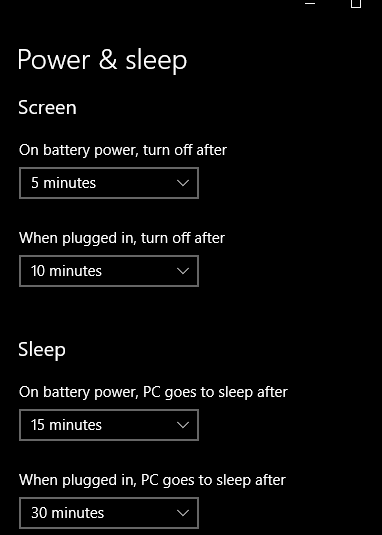
Extended battery life at your fingertips
 Replace battery? We often treat such necessity as fate. However, contrary to appearances, much depends on us. Proper handling of the battery during its operation, as well as care for its condition, can significantly extend its service life. What to do to make the battery last as long as possible, experts from Jenox Accumulators, a manufacturer of lead-acid batteries, advise.
Replace battery? We often treat such necessity as fate. However, contrary to appearances, much depends on us. Proper handling of the battery during its operation, as well as care for its condition, can significantly extend its service life. What to do to make the battery last as long as possible, experts from Jenox Accumulators, a manufacturer of lead-acid batteries, advise.
A dead battery is an unpleasant surprise for most drivers. The good news, however, is that in most cases, if we take care of the battery while we use it, we can increase its lifespan and minimize the risk of unexpected failure. Remember, however, that the battery, like any other battery, will run out sooner or later.
“The batteries that are being produced today provide more consumers in the car than they need to be fed. In addition to the radio, as it was a few years ago, there is also heating, seat heating, air conditioning, and an alarm system. It is they who constantly cause increased battery consumption, especially when the car's engine is not running and is not powered by a generator, says Marek Przystalowski, vice president of the board and technical director of Jenox Accu.
An unused battery, although not working, needs proper care. He dislikes both high and low temperatures. Experts do not advise taking it out of the car and leaving it unused in the garage.
Don't buy in stock
– No need to buy a spare battery and leave it in the garage or at home waiting just in case. The battery loses its performance during storage, regardless of the conditions under which it is stored, explains Marek Przystalowski. - After all, in the worst conditions, with high humidity, high temperature, it loses these properties faster. An unused battery is also subject to chemical processes that drain it. Therefore, it needs to be checked in a quarter or two, adds Marek Przystalowski.
The battery used in the car should also not be left unattended. Every time we look under the hood for any purpose, either to check the oil level, or to add fluid to the washer, we inspect the clamps (whether they have faded or weakened) and check if the battery is dirty.
- The cleanliness of the connections of the pole pins, the so-called clamps, is especially important - they are not dusty or dirty. Even these small details matter when it comes to extracting power from the battery faster. Clamps, in addition to being clean, must also be lubricated with technical petroleum jelly. All wiring in the car must be well tightened. They should not hang out, Jenox Accumulators expert warns. - Loose ones can cause sparks, especially since hydrogen or oxygen is always released in a working battery. Even one spark from a battery can cause an explosion. So it is dangerous and impractical,” he explains.
Maintenance is important
 Refer to the warranty card for proper battery care instructions. So let's get to know them so that there are no problems with starting the car. A significant part of the batteries produced today, for example by Jenox Accumulators, are maintenance-free. This means that you do not need to top up the electrolyte with distilled water, as was the case before.
Refer to the warranty card for proper battery care instructions. So let's get to know them so that there are no problems with starting the car. A significant part of the batteries produced today, for example by Jenox Accumulators, are maintenance-free. This means that you do not need to top up the electrolyte with distilled water, as was the case before.
It happens, however, that the installations in cars do not work correctly, especially in old ones brought from abroad, there may be incorrectly set charging parameters, an inefficient electrical installation or an exhausted generator. This causes the water in the electrolyte to evaporate, leaving the acid behind and increasing the concentration of the electrolyte. Thus, the battery plates are exposed in front of us and the battery is sulphated.
– There are times when a customer advertises a battery, and the battery inside is completely dry. However, we must be careful and, if we have the opportunity, check the electrolyte level and battery voltage from time to time, says Marek Przystalowski.
Be aware that turning on the lights, using the radio or heated seats while stationary will damage the battery and may drain it.
- If the voltage drops below the cut-off threshold of 12,5 volts, then you need to find out what is the cause of the drop. The point is in the installation or in too short reloads. In the latter case, you can recharge the battery. How to do this is described in detail in the warranty card. It is also worth remembering that the warranty for conventional car batteries is 24 months, adds Marek Przystalowski.
Warranty gives confidence
If during this time the battery fails, you can file a complaint. Of course, you need to show your warranty card, proof of purchase and answer questions from a service technician. Battery problems do not necessarily have to be related to a defect.
“The most common complaints we come across are related to battery drain. The life of a lead-acid battery is greatly affected by its operation. Read and follow the instructions for use provided with the product. Especially if the battery is mainly used in urban cycles with frequent engine starts, the state of charge should be checked periodically, warns Andrzej Wolinski, Jenox Accu Service Technician. And he adds: “Each time the car engine starts, it takes away a large amount of cargo from it, which must be delivered from the generator while driving. If the time between engine starts is short, the battery will not have time to charge. Moreover, if the car has an additional air conditioner, headlights and radio are on, the generator will not give out the required load in such a short time. This leads to a gradual discharge of the battery, despite the effective charging installation in the vehicle. The use of a partially discharged lead-acid battery, due to the nature of the electrochemical reactions taking place in it, causes a gradual decrease in its parameters and drastically reduces the battery life, warns Andrzej Wolinski.
Experts suggest checking the battery at least once every three months, checking the open circuit voltage with a simple voltmeter. This can be done either at a specialist shop, a regular mechanic shop, or in your garage if you have a voltmeter.
In addition, it is also worth checking the battery before winter. Humid air and low temperatures make this time a test for batteries.

